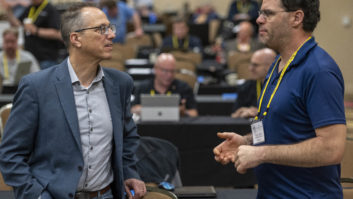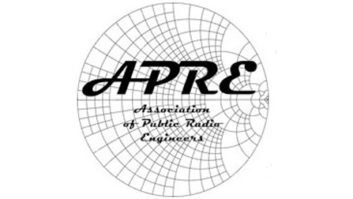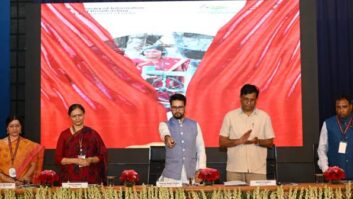The Association of Public Radio Engineers has had a busy couple of years keeping up with ever-changing public health guidelines while working to support the radio engineers who have kept their stations up and running.
APRE is a nonprofit that “exists to advance preserve the mission of public radio stations through education, outreach, regulatory support and the ongoing development and preservation of best engineering practices,” according to its website and Facebook page.
Some of this outreach and support can usually be found at the nonprofit’s Public Radio Engineering Conference. PREC serves as a professional development opportunity for the engineering community as well as a place to honor engineers for their service. While the annual conference was on a hiatus for a couple of years due to the pandemic, this year the event returned to Las Vegas just prior to the NAB Show.
The conference also serves as an avenue to bring in new blood — a hot topic in recent years as industry leaders express concern at the declining number of radio engineers.
To recap PREC, Radio World spoke to Victoria St. John, president of APRE and director of operations for Vermont Public Radio. In the following interview, St. John shares her joy in having reunited with the engineering community this April. Plus, what issues the industry currently faces in terms of recruitment and staffing and how she hopes to diversify the workforce moving forward.
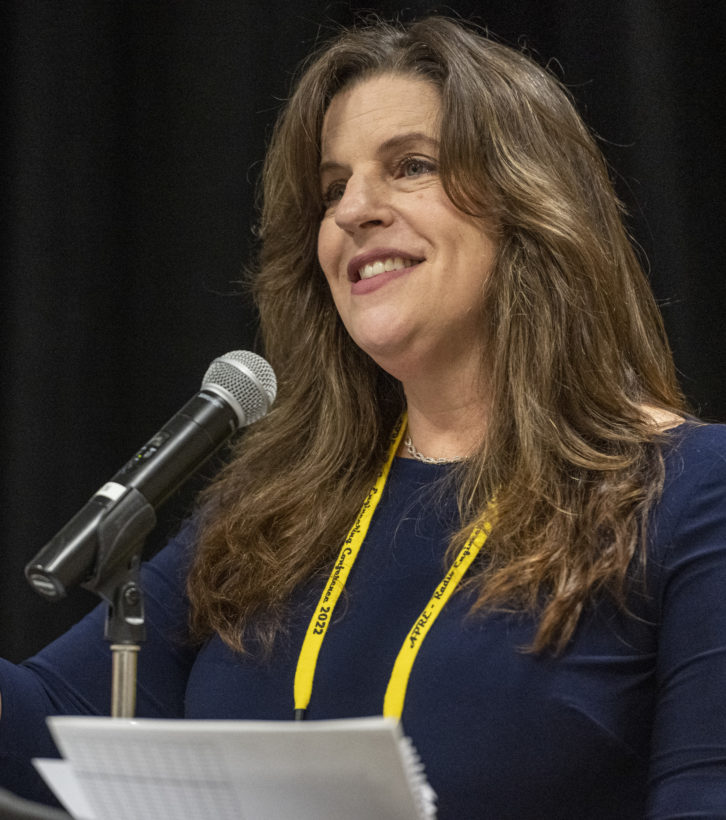
Radio World: Tell me about PREC! How did it go? I’m sure it was exciting to reconnect with everyone in-person.
Victoria St. John: It was fantastic. This conference has been an in-person, networking, rub elbows, eat lunch, share stories, in-person conference for many years. This was actually our 20th conference this year. It would have been our 22nd had we not missed two years during COVID. So, evolving our remote access to this conference was something we focused on. We wanted to make sure we had as much interaction and networking as possible. I’m very proud to say it was successful not only in-person, but remotely as well.
RW: What was the turnout like?
St. John: Not only was it better than we expected, it was more than we had in 2019. When the executive committee and I were talking and thinking about what success would look like, we thought “Well, if we can get even 30 people to sign up that would be success.” Just getting it back together was really important to us. We ended up with 114 people, 30 online and the rest in-person.
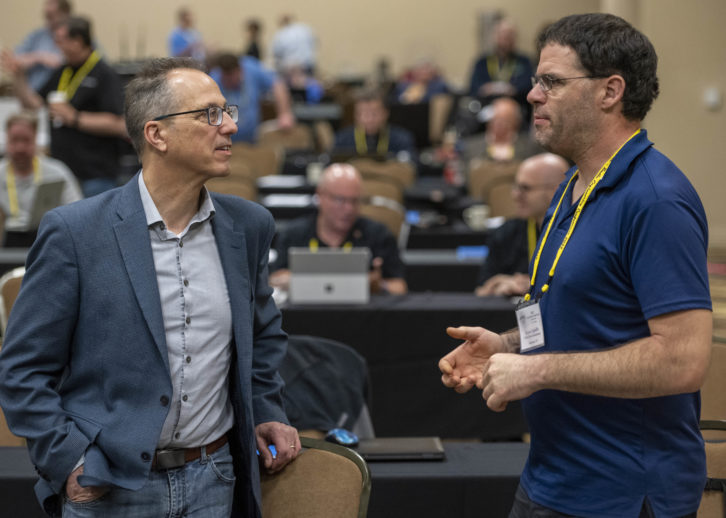
RW: What were some of the highlights?
St. John: Coming back together and sharing information was the most important thing this year. But, I would say the highlight of this conference for me and for the board was the amount of scholarship winners that came to the conference and also remotely experienced it. Our partnership with NPR sent around 27 young — not necessarily chronological but new to the engineering community — people to the conference.
RW: So part of APRE’s work revolves around getting more people involved in the radio engineering world?
St. John: Our focus is always looking ahead, looking forward. I would say that 80 to 90 percent of our listeners on the radio side [at Vermont Public Radio] are listening over the air. That’s a reality. But the focus now is on multiplatform delivery — where are we going, what’s next? And that can make recruitment difficult in this industry because the types of brains that it takes to be a broadcast engineer are now being pulled in other directions, to other bright, shiny opportunities.
RW: How are you [and APRE] working to get more people interested?
St. John: One of the challenges we have is “how do we bring in and make more women a part of this?” We want to seek to be inclusive in the future and encourage participation in engineering from a diverse audience. There are 13 of us [on the board at APRE] who do this because we want to. Among all of us, we continually do outreach. I wish I could say it was fancier, but we are an all-volunteer board. But the good part of that is we’re still here, we’re still financially viable. We presented 11 scholarship opportunities for people to attend [PREC] in person, including hotel and airfare, or remotely.
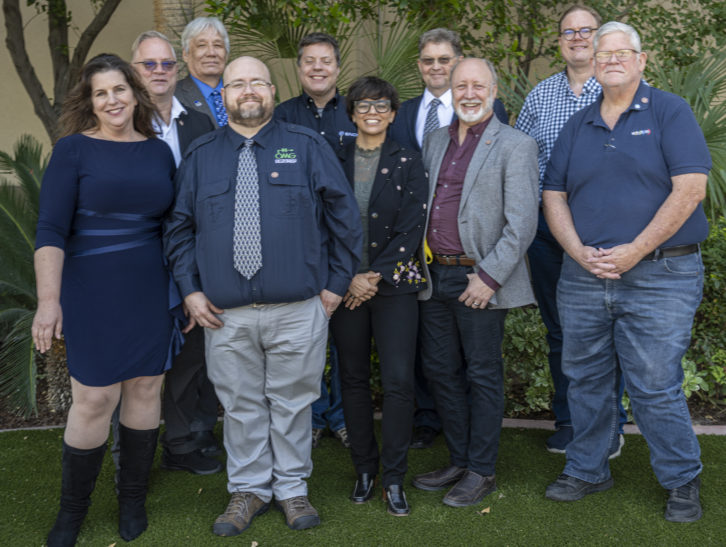
RW: Are you worried about the future of the workforce?
St. John: You know, a lot of the people we have — the current staffing of mountaintop engineers — are a much older crowd because they’re people who came into this industry who loved radio, who grew up taking the radio apart or building a transistor radio in their basement. That type of brain now, in the 21st century, is podcasting and gaming. So, this particular industry is suffering from people aging out.
So, when I say the biggest scholarship-winning team we’ve ever had [at PREC] this year, that’s huge. Bringing new blood into the industry is so important.
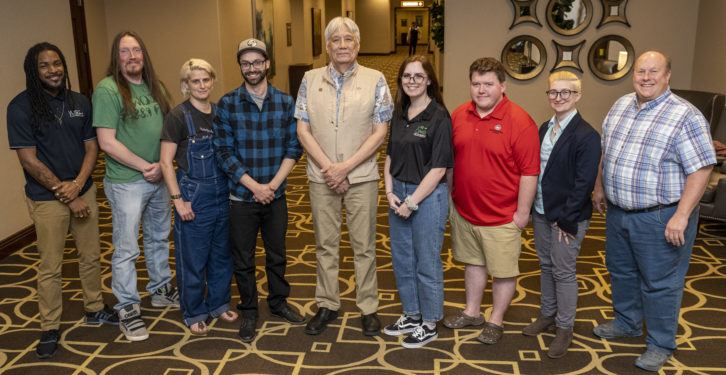
RW: Looking ahead, what are APRE’s priorities for the rest of 2022?
St. John: Recruiting. Thinking about how to get the word out. Working with schools, universities — getting young people interested. And not just young people. It’s not just age, it’s mindset and interest.
[Related: “APRE Seeks Return to Normalcy“]





